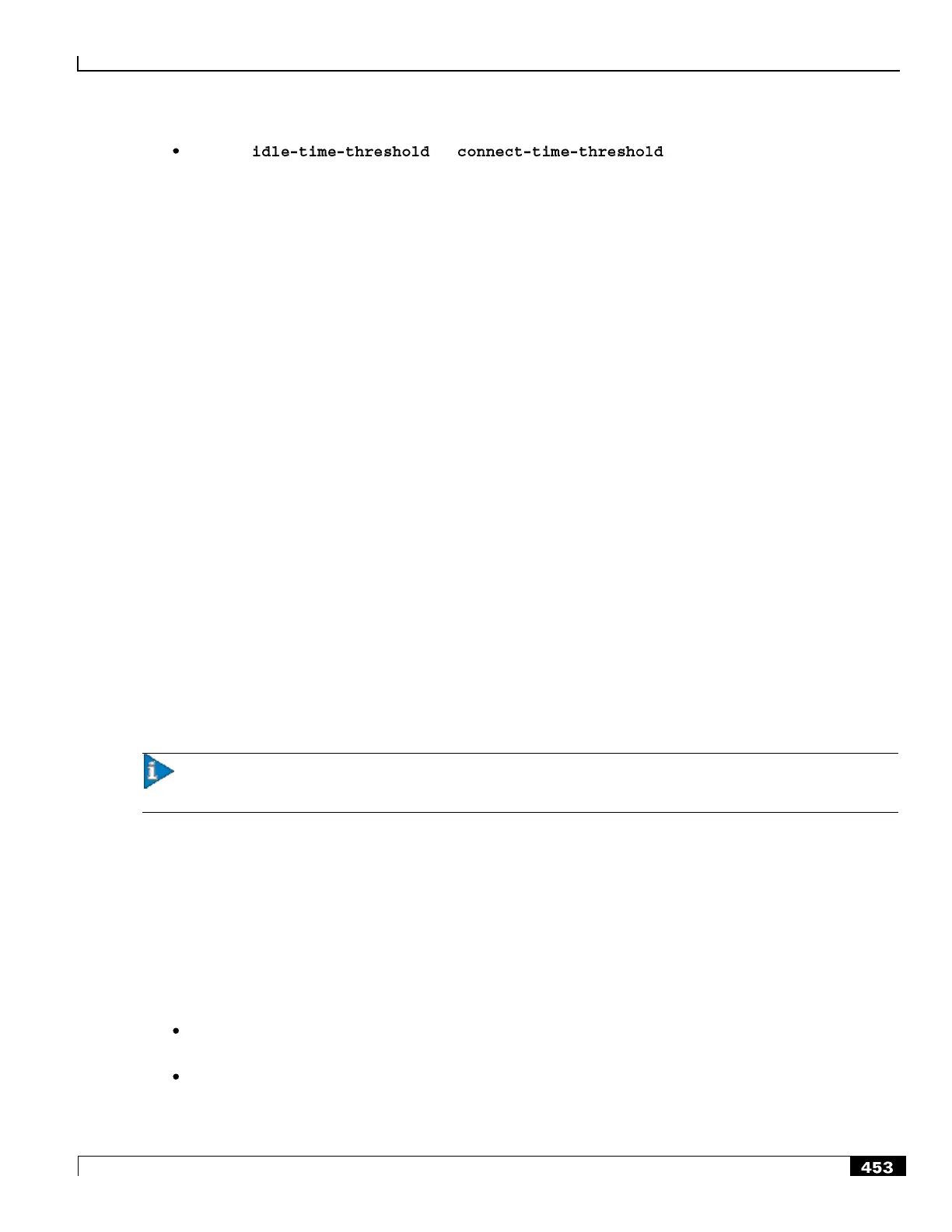Packet Data Interworking Function Overview
Features and Functionality - Base Software ▀
Cisco ASR 5000 Series Product Overview ▄
If neither nor is configured, sessions are sorted
based on the idle-timer, and sessions with a longer idle-timer are deleted first.
SCTP (Stream Control Transmission Protocol) Support
PDIF provides support for SCTP (Stream Control Transmission Protocol) for use in communicating with Diameter
peers over IPv6.
Diameter/SCTP connections are set up for administratively enabled Diameter peers whenever the system configuration
is loaded. In the event of certain card or task-level failures, SCTP connections are torn down and re-established (but
note that the Diameter state will still be maintained).
SCTP complies with the description in [RFC 2960 Section 5.1.1] for how to handle the case where the peer is incapable
of supporting all of the outbound streams that the endpoint wants to configure. Specifically, PDIF does not abort the
session but instead adjusts the association's number of outbound streams to match the number of inbound streams
advertised by the peer (in the event that the number sent is less).
X.509 Digital Trusted Certificate Support
A digital certificate is an electronic credit card that establishes one's credentials when doing business or other
transactions on the Web. Some digital certificates conform to ITU-T standard X.509 for a Public Key Infrastructure
(PKI) and Privilege Management Infrastructure (PMI). X.509 specifies, among other things, standard formats for public
key certificates, certificate revocation lists, attribute certificates, and a certification path validation algorithm.
The PDIF generates an SNMP notification when the certificate is within 30 days of expiration and approximately once a
day until a new certificate is provided. The operator needs to generate a new certificate and then configure the new
certificate using the CLI. The certificate is then used for all new sessions.
Important: For more configuration information, refer to Global Configuration in the Command Line Interface
Reference.
Custom DNS Handling
By default, the PDIF always returns a DNS address in the CP payload if one is received from the configuration or the
HA. A new CLI has been added defining an alternate series of supported behaviors depending on the number of
INTERNAL_IP4_DNS. These include, but are not limited to, the following:
Provides a mechanism whereby the DNS address present in configurations will be sent to the MS in the CP
payload only if the MS requests one.
The address 0.0.0.0 is treated as invalid and not included.

